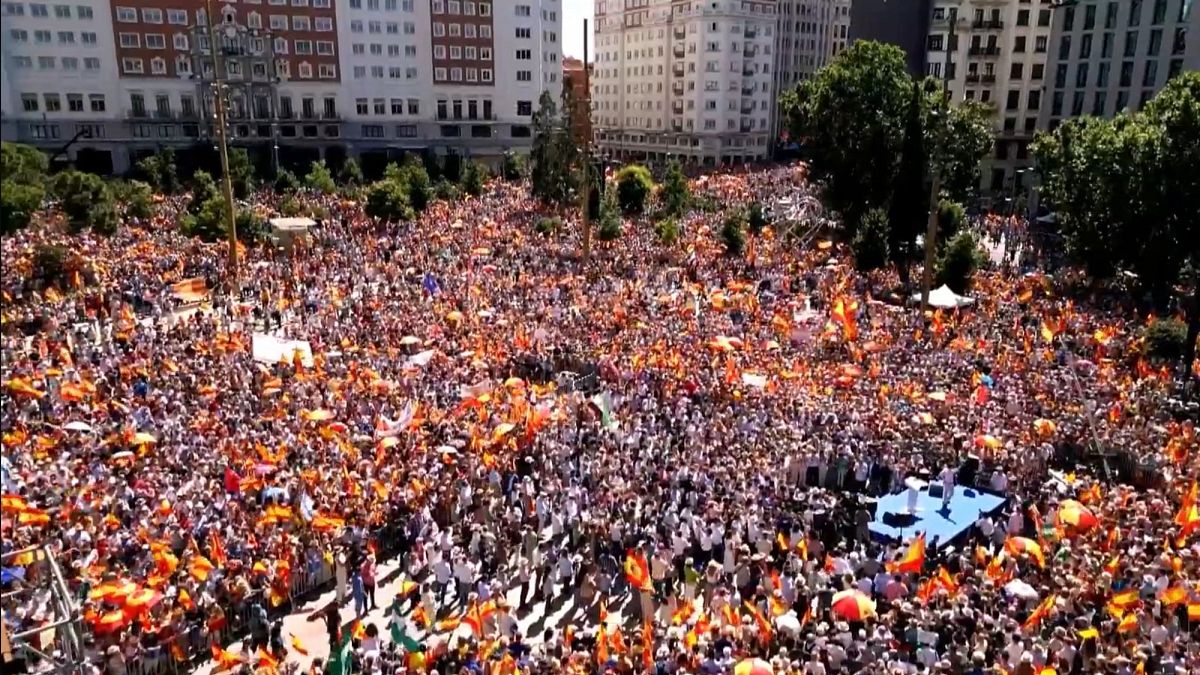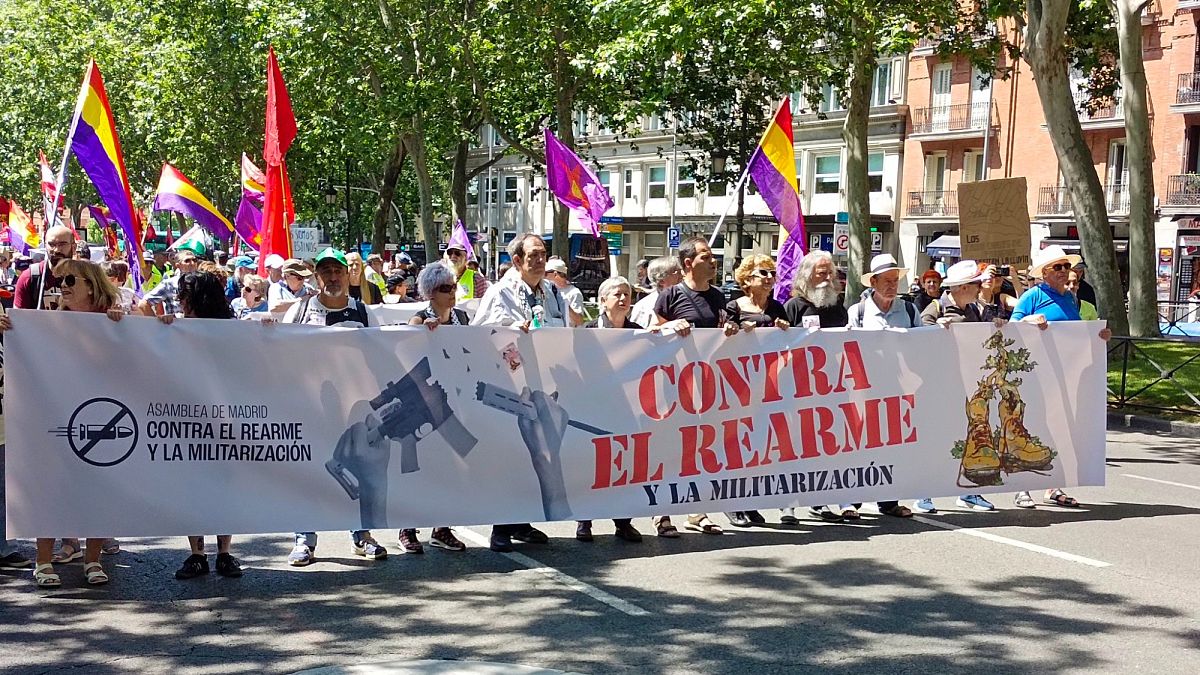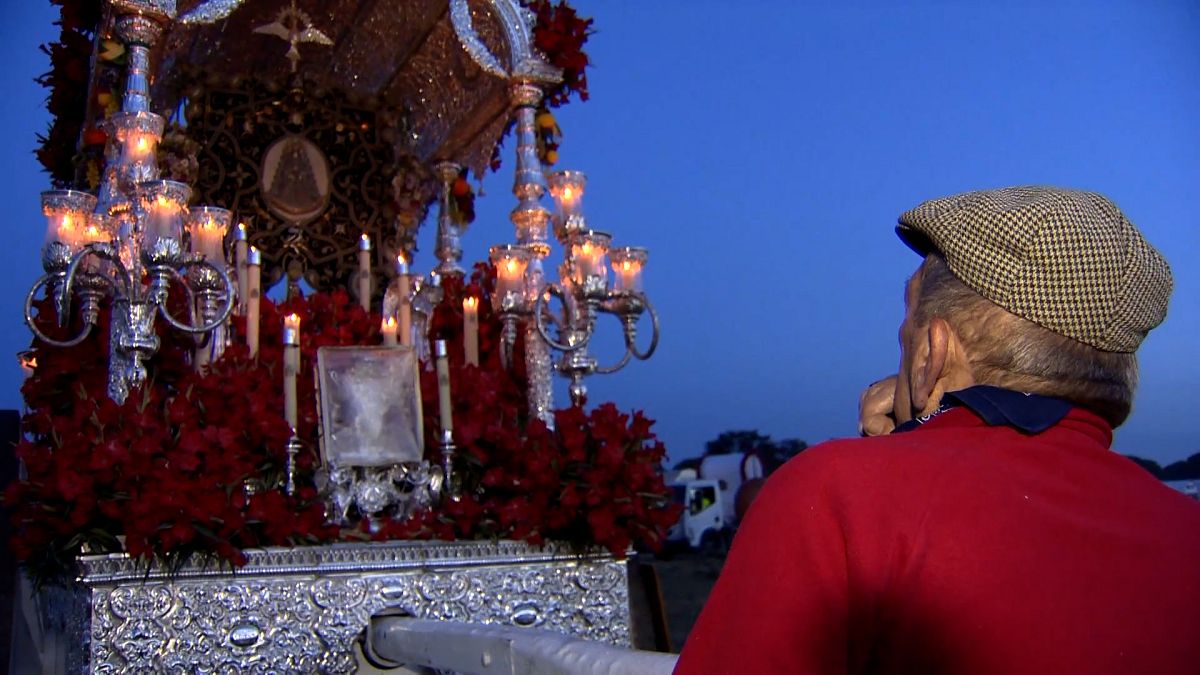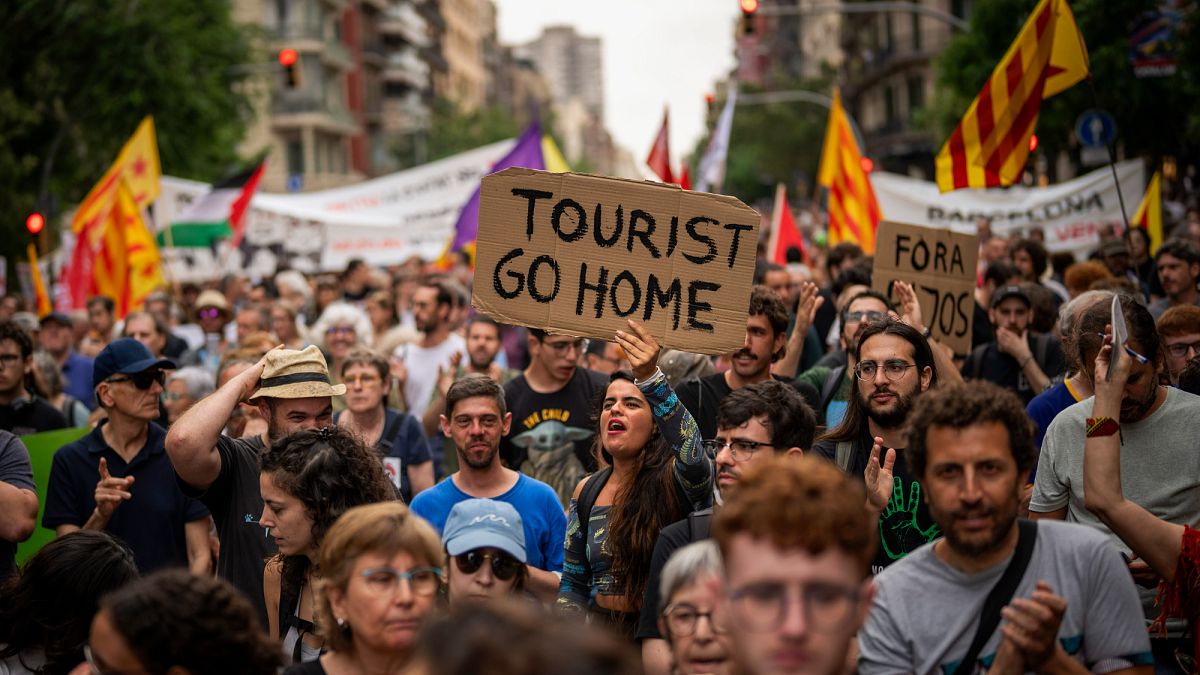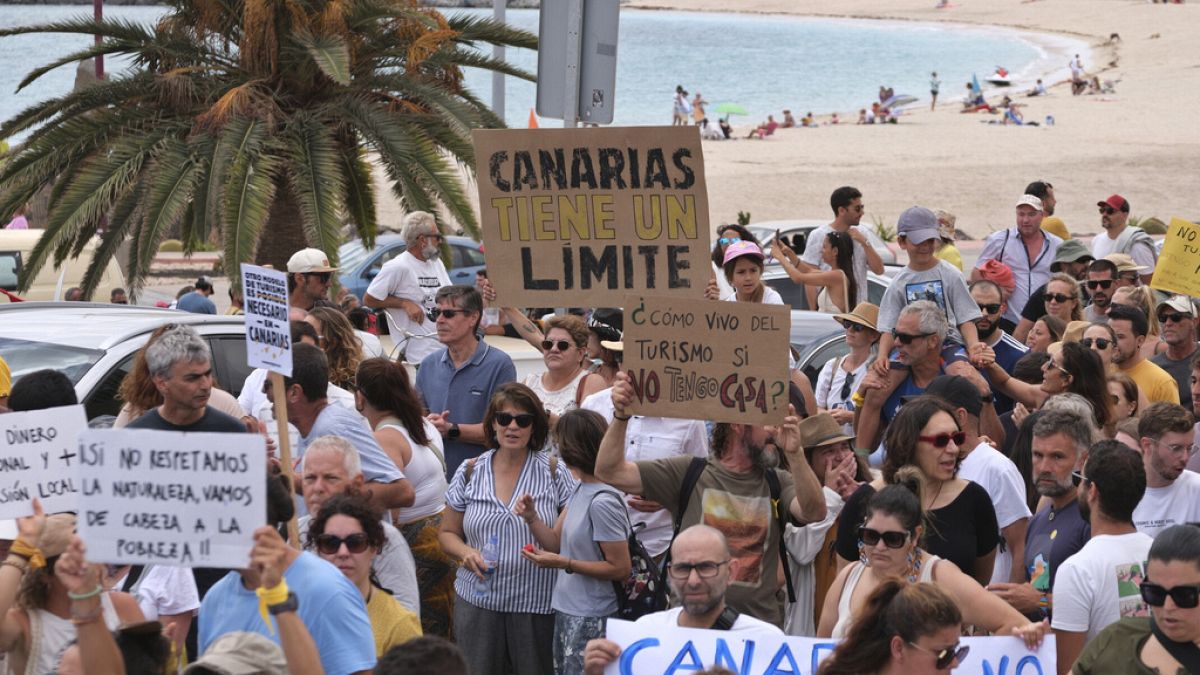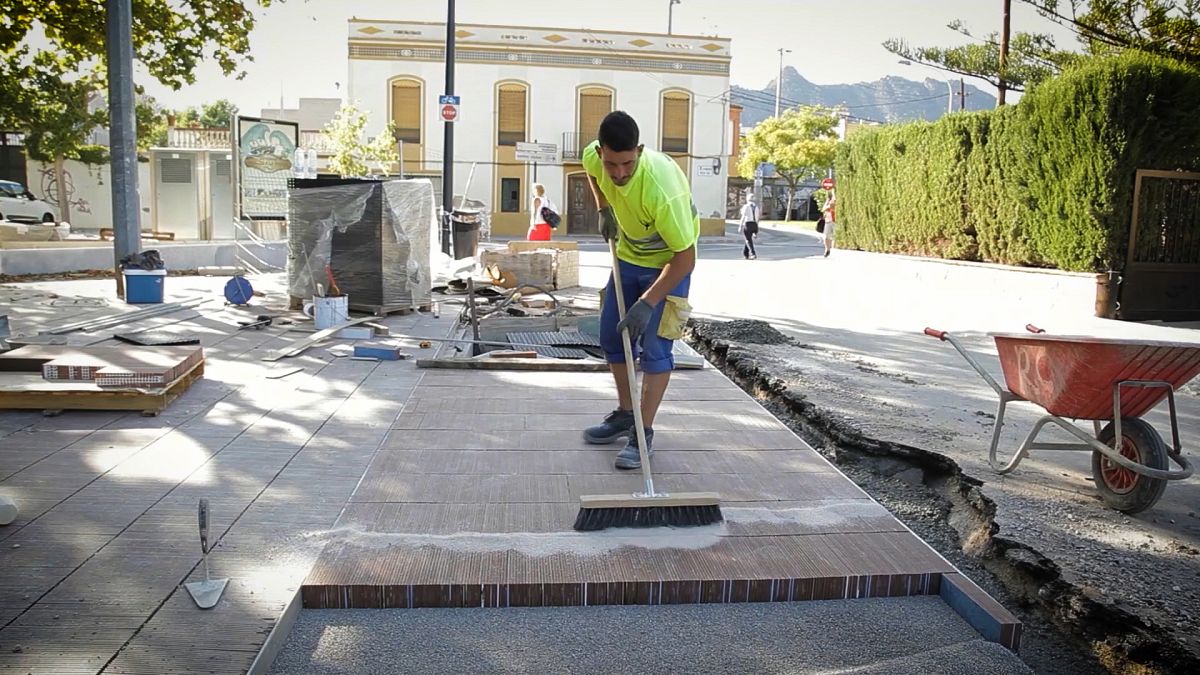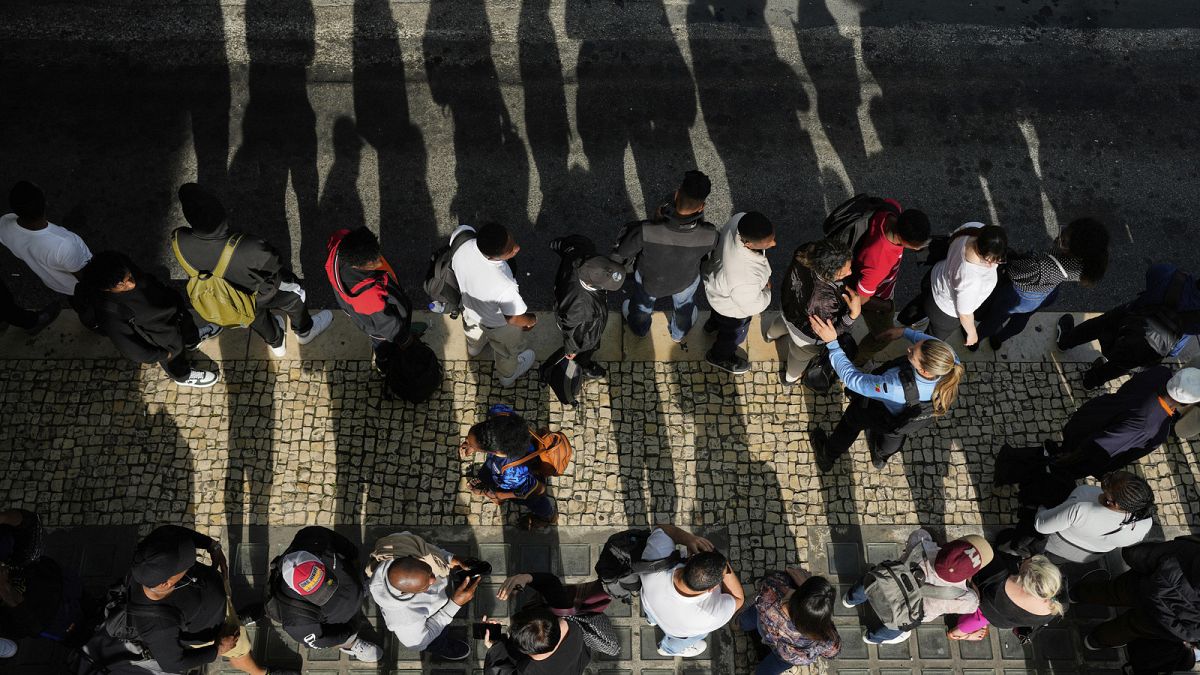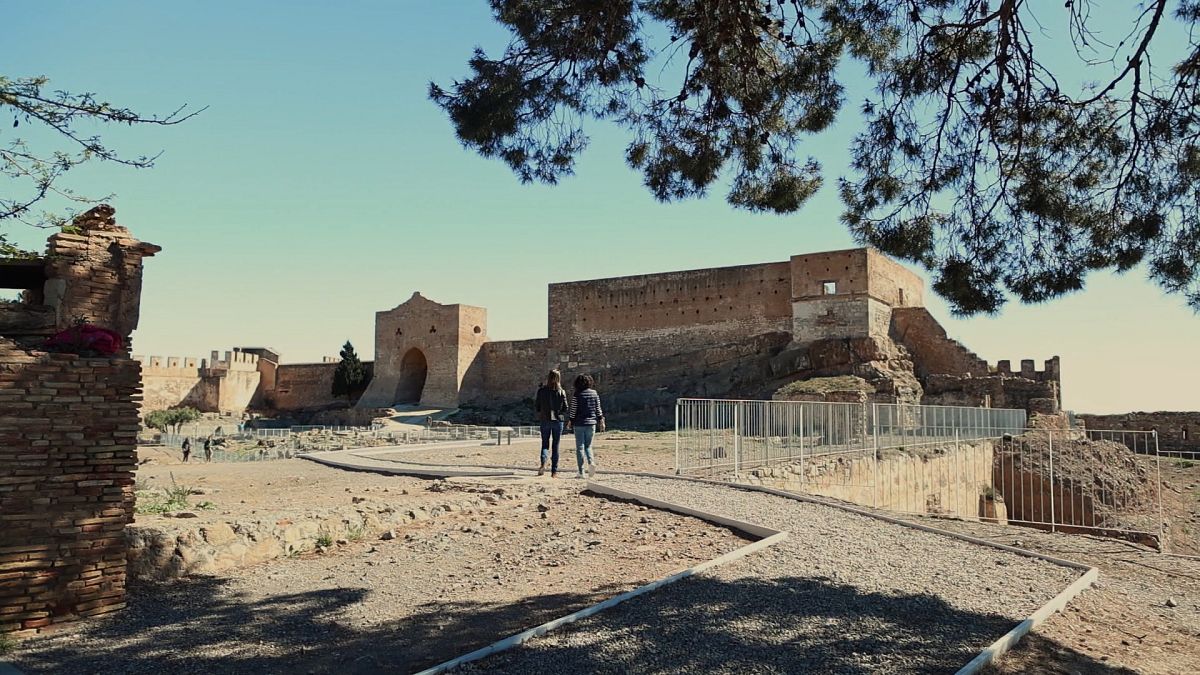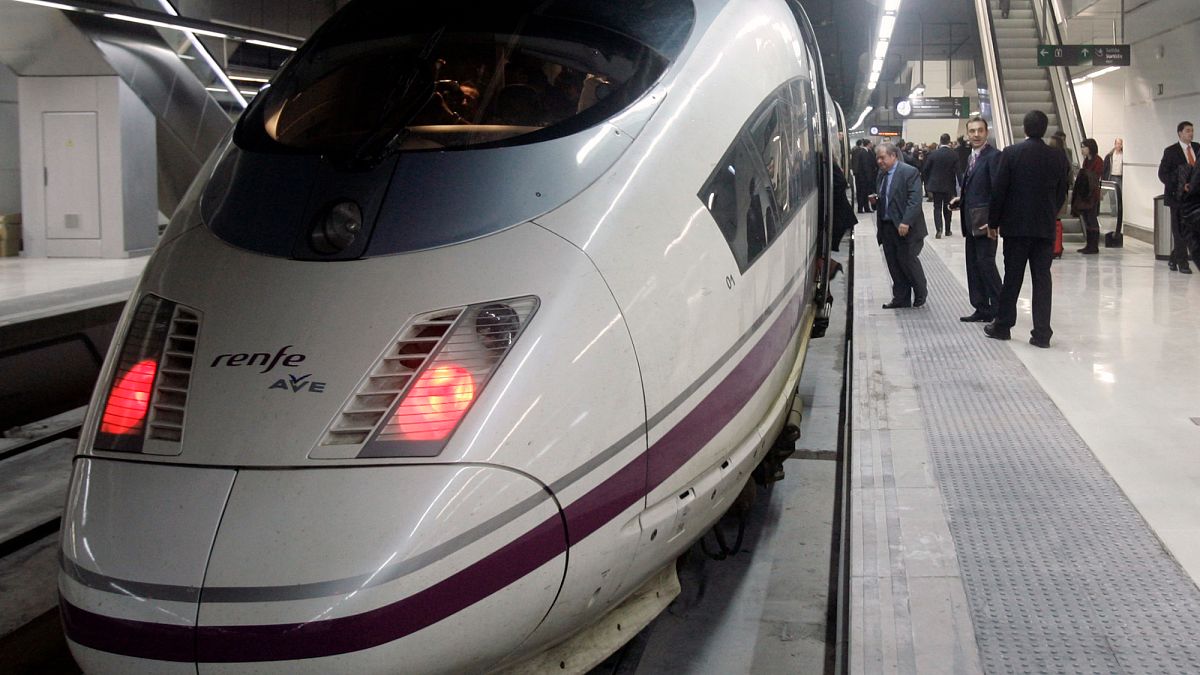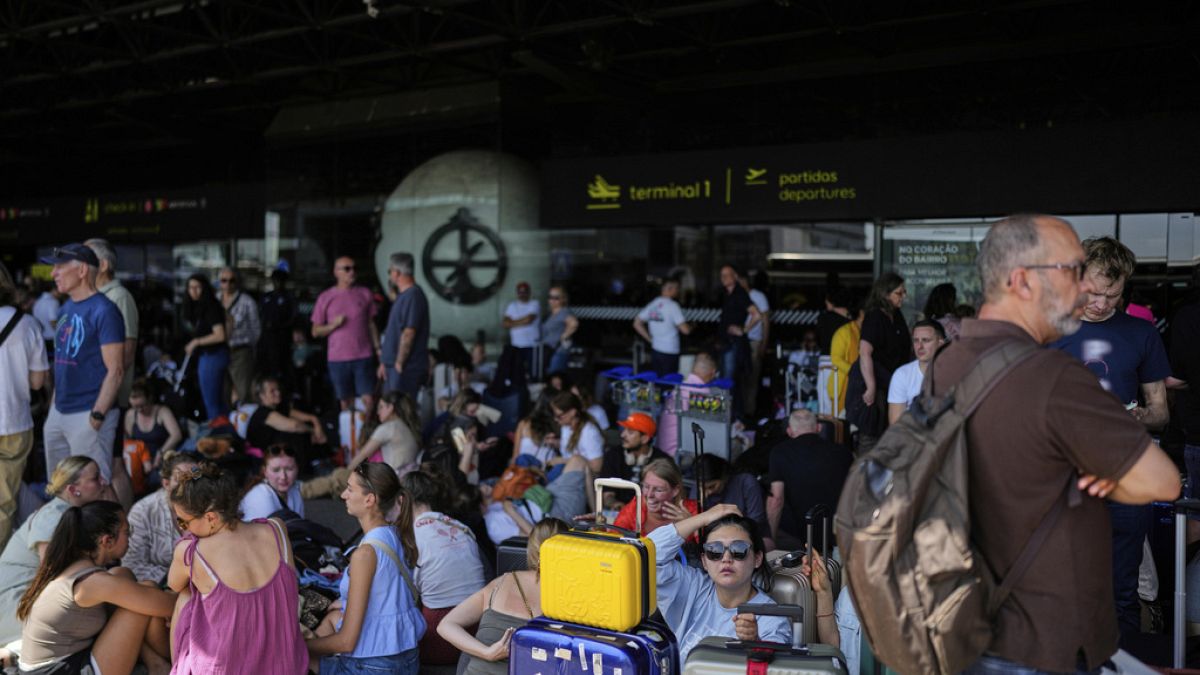Alberto Núñez Feijóo is poised to become Spanish PM. Who is he?
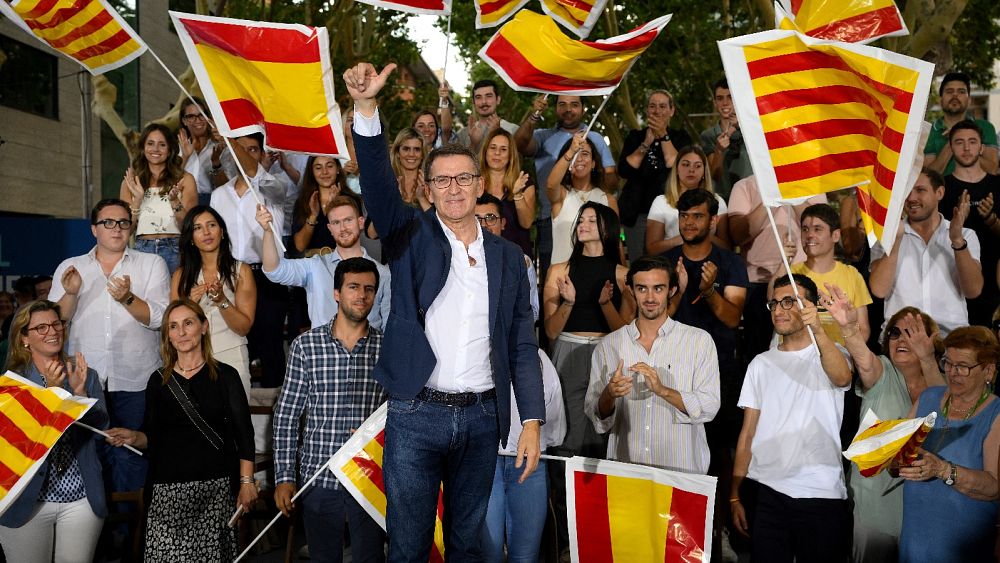
As Alberto Núñez Feijóo took to the stage last Thursday to something akin to a rock star welcome, behind him was a campaign sign which read: This is the moment.
Many in the large crowd in Castelldefels, a wealthy seaside town near Barcelona hoped he may be Spain’s next prime minister.
With less than two weeks until a snap election on July 23, it looks that way.
A succession of polls predict that Feijóo, the PP leader, will win more votes than the ruling Socialist Party but the PP will fall short of winning a majority and may have to rely on the far-right Vox party.
If Feijóo moves into the Moncloa Palace, the Spanish prime minister’s official residence on the outskirts of Madrid, what will this mean for Spain – and Europe?
Throughout this whirlwind summer election, he insisted he can govern alone without Vox but this might require the Socialists and the far-left Sumar party to abstain – something they have refused to do so far.
Feijóo styles himself as a “dull technocrat” in contrast to the Socialist prime minister Pedro Sánchez, who is nicknamed ‘El Guapo’ – The Handsome One – for his film star good looks.
The two men came face to face in a chaotic television debate on Monday night which observers believe Feijóo won – or rather Sánchez lost.
The 61-year-old conservative leader has pledged strong support for the European Union, backing for Ukraine and promoting links between Europe and Latin America.
A victory for the PP would mean a right-wing government would take over Spain’s six-month presidency of the Council of the EU which the Socialists started on July 1.
Feijóo’s party has agreed a series of deals to govern with Vox in a series of regional governments since local elections in May and Sanchez tried to suggest the same could happen on a national level.
A poll for Ipsos for La Vanguardia newspaper found 60% of Spaniards were worried about the prospect of a PP-Vox coalition.
From regional to national government?
In his election manifesto, Feijóo said the PP backed the policy of ‘strategic autonomy’ for Europe which aims to give the continent independence in sectors like defence and technology from the United States and China.
Spain would also support an “efficient, humanitarian and secure” common EU policy to tackle the migration crisis.
He has lined up former ministers and ambassadors to help if he suddenly takes over the EU presidency.
These include José María García Margallo, a former foreign minister and Íñigo Méndez de Vigo, the government spokesman in the last conservative administration.
Feijóo insists his government would keep the border open between Gibraltar and Spain as torturous negotiations between the post-Brexit status of the Rock foundered because of the election.
Until now, Feijóo’s only experience has been running the regional government in Galicia, a conservative rural region in northwestern Spain.
If he becomes prime minister, he will be plunged immediately into international politics, but he insists he is prepared.
“Don’t expect any song-and-dance or last-minute script changes from this candidate but rather certainties, moderation and stability,” he told a recent Madrid meeting.
But Feijóo will lack one essential skill: English.
While Sánchez likes to show off his English and French when talking to heads of state, Feijóo will depend on translators.
Caught off his guard when Sánchez called a snap summer election on May 29, he was about to start English classes that week.
“I literally had the English teacher from last Monday but then they went and called the election,” he said in an interview to Spanish television last month.
“But I can assure you that in international summits, which are usually done with translators, the important thing is they understand what I am trying to say.”
On the domestic front, Feijóo said in an interview with the Financial Times he would overhaul a €3 billion windfall tax which has provoked the ire of banks and energy companies but stopped short of saying he would scrap it entirely.
In classic conservative fashion, Feijóo also promised to lower income tax for those earning less than €40,000 per year – which is the majority of Spaniards.
Feijoo’s moderate style
From true-blue conservative stock, Feijóo did not have a privileged background.
The son of a maintenance worker and a housewife from a hamlet in his native Galicia, Feijóo was sent away to a boarding school on his 10th birthday.
Originally, he wanted to become a judge but this ambition was stifled when his father lost his job so he opted for the Galician civil service. He shot through the ranks and by 35, he was leading Spain’s national health service.
Despite his age, six years ago he fathered a son, also called Alberto, with his partner Eva Cardenas, a company director. Almost like the song ‘Love is in the air’, the pair met on board a flight from Madrid to Galicia.
Feijóo won four straight elections in Galicia with a moderate style which won votes from the far-right to Galician nationalists.
This sympathy with Spain’s other ‘nations’ – Catalonia, Galicia and the Basque Country – might give him a slightly warmer reception from Catalan separatists with long memories of how a previous PP government sent hundreds of police to quell an independence referendum in 2017.
Feijóo kicked off the election campaign in Castelldefels, a town that is home to footballers from FC Barcelona and wealthy business people.
Ironically, next to the rally was the House of the Republic, which pays homage to those on the Republican side who lost their lives or who were forced into exile in the Spanish Civil War.
Feijóo has promised to repeal the Democratic Memory Law, which was brought in 2022 by the left-wing coalition government to deal with the legacy of the dictatorship of General Francisco Franco, who ruled Spain for nearly 40 years. The PP leader insists Spain has moved on from this dark chapter of the country’s past.
Stifling humidity did nothing to quieten the adulation of supporters who interrupt Feijóo with cries of ‘President!’
Once again, he used the opportunity to appeal to voters to come out to support the PP so he could form a “government without intermediaries” – a clear reference to Vox.
Vanesa Vazquez, 41, came to the rally to see the man she hoped would be the next prime minister.
“There is a lot of excitement here. We hope it is Feijóo who wins the election, so we can get rid of Sánchez,” she said.
Watching from the sides was Lola Alvarez, 62, a left-winger, who will not be voting for Feijóo.
“He will not be good for Spain. We have a good economy right now. We don’t need change,” she said.
Source: Euro News



